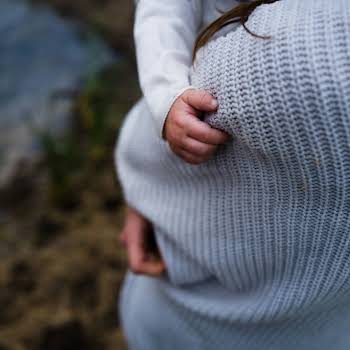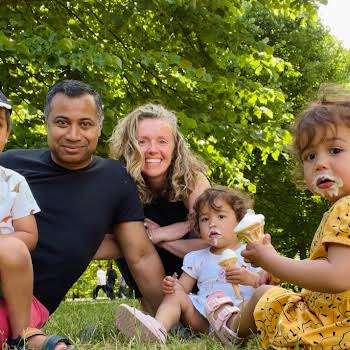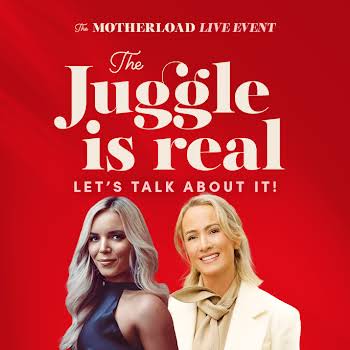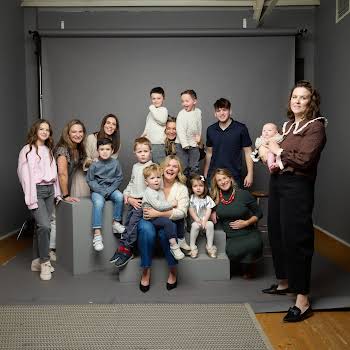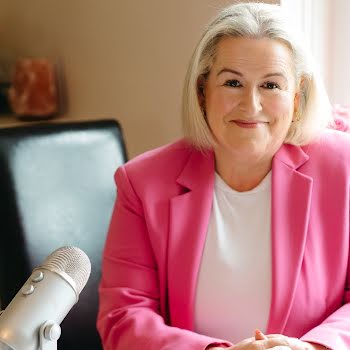
Is it possible to navigate tween moodiness without completely losing your mind?
The truth about raising your tween.
“Okaaaaaaay, fineeee,” she shouts and stamps off out the door with a flourish that only a tween aged nine and a half can master. I look at the little girl-shaped hole in the room and wonder how my quiet sweet child has, overnight, turned into a tall, moody toddler.
Her usually happy face quickly twists into a scowl when I ask her, well, anything. Black is white and white is black. She is hungry and sleepy and unpredictable and exhausting. I didn’t expect this for at least another two years. I am wildly underprepared. “She was supposed to be my easy one”, I confide in a friend.
We are clashing over the smallest of things and when I start to look into it, I realise my first mistake; I’m taking the bait.
It is really is more about them than you
Do not take the bait
Parenting expert Alison Schawer says that between the ages of eight and 12, independence and assertiveness often take centre stage. “It is a rebellion. They are testing your limits. Similarly to when they were finding their place in the world as a toddler, they are trying to seek out their personhood. Try to respond to content rather than tone. If she tells you she hates your dress, tell her you are sorry she doesn’t like it and move on to the next topic. It is really is more about them than you. Hang in there.”
It is hard to be half little, half big, I remind myself
I practice on Little Miss Fussy later in the evening. “I made your favourite dinner,” I tell her triumphantly, part of me daring her to argue with this one. “I actually prefer lasagne,” she pouts. But I can see the little in her coming out later when she chases her siblings on the trampoline. It is hard to be half little, half big, I remind myself.
Humour
Speaking to some of the other mums in her class, they too are going through tweenage trials and tribulations. Try to use humour to cut the tension, one suggests. Another says she tries not to confront her child face to face, instead preferring to chat while in the car or on a walk so there is no power struggle.
I encourage her to be active, to run and feel free and let the wind whip up her hair as she runs about with her friends. Something child psychologist Coleman Noctor agrees with. “Your child’s body is growing which is why physical activity is so important. Exercise helps young pre-teens and adolescents maintain emotional well-being. Studies show that teenagers who participate in sports have higher self-esteem and do better at school”
Transition
It is a time of magical blossoming. But it is a transition – it is the start of the turbulence that changes can bring. If we don’t accept and navigate their blossoming independence, we invite rebellion or worse, deception.
And just when I feel like I’m losing her, one day she snuggles under my arm and rests her head on my shoulder. “Tell me about the snow on the day I was born,” she whispers.
I hold her small frame close, noticing that her hands still have the tell-tale dimples of babyhood. Her legs are getting longer, her attitude more fierce but there is a newness to her that I quite like too. She is on the cusp of it all.
She needs me to hold the other end of the rope, tightly, while she thrashes on the other end
Sometimes it feels like a widening gulf – this enforced separation of hearts and minds, but I’m also aware that is a necessary and healthy evolution of our relationship.
Just like when she was two and would grip my hand tightly as she explored her new surroundings, now she needs a new type of tethering. She needs me to hold the other end of the rope, tightly, while she thrashes on the other end. She needs to find her foothold in the new chapter of her world. She’s seeking out her edges, and some, she can only find by pulling on me.
She needs this fight. But we both know, no matter how hard we battle, nothing can destroy what we have built over the years.
I pull her closer and start to say the words she wants to hear, the words I’ve been whispering in her ears for almost nine years. “It was six o clock on a silent, silver morning…”
Image via Unsplash.












